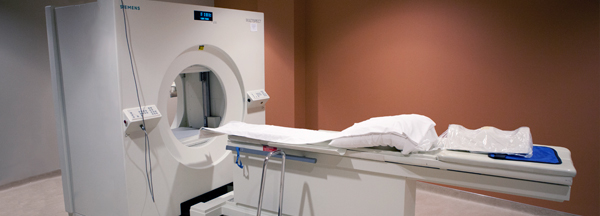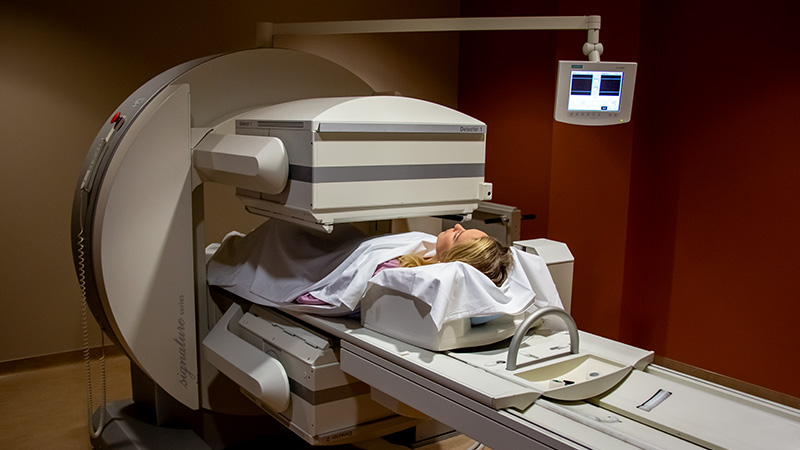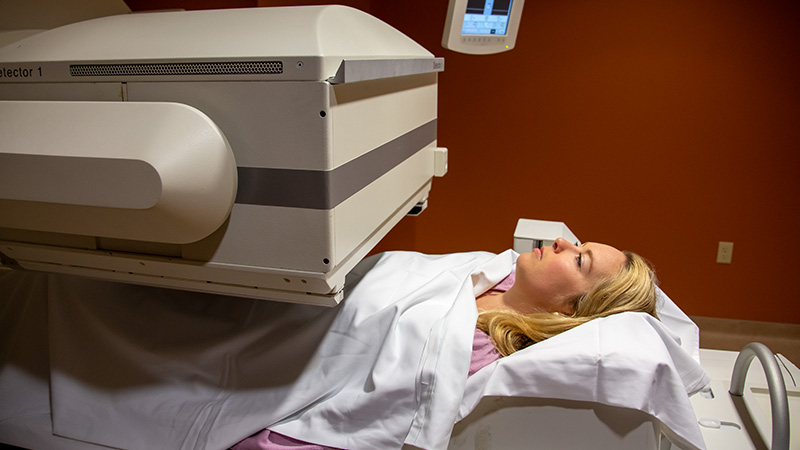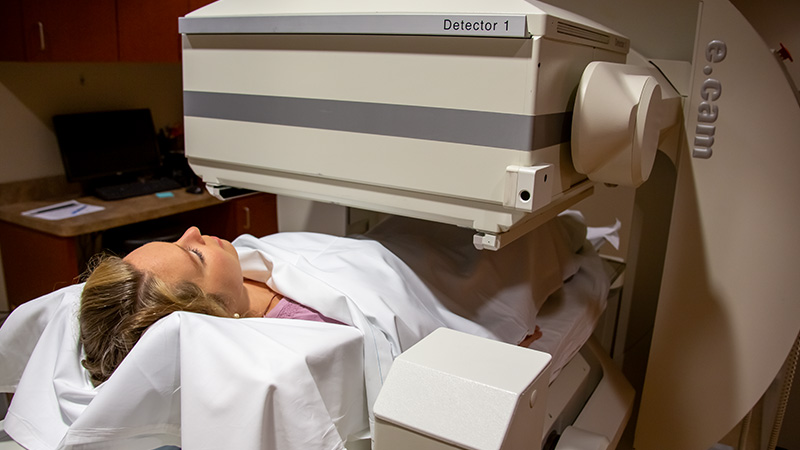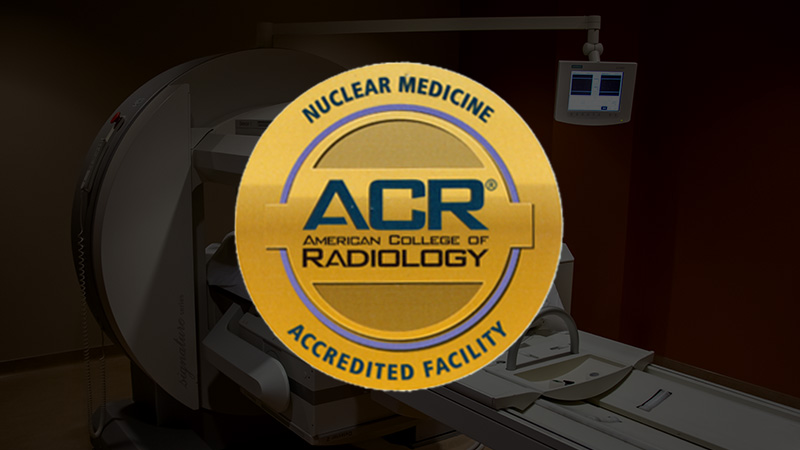What is Nuclear Medicine?
Nuclear Medicine is medical imaging technology combined with small amounts of a radioactive substance (radioisotopes) which enables doctors to pinpoint molecular activity within the body. This offers the potential to identify disease in its earliest stages as well as patient’s immediate response to therapeutic interventions.
Nuclear Medicine can provide physicians with information on:
- Kidney function
- Image blood flow and function of the heart
- Scan lungs for respiratory and blood-flow problems
- Identify blockage of the gallbladder
- Evaluate bones for fracture, infection, arthritis or tumor
- Determine the presence or spread of cancer
- Identify bleeding into the bowel
- Locate the presence of infection
- Measure thyroid function to detect an overactive or underactive thyroid
What to expect from Nuclear Medicine
- Usually, no special preparation is needed for a nuclear medicine examination. However, if the procedure involves evaluation of the stomach, you may have to skip the meal immediately before the test.
- If the procedure involves evaluation of the kidneys, you may need to drink plenty of water before the test.
- Most of the radioactivity passes out of your body in urine or stool. The rest simply disappears through natural loss of radioactivity over time. As with other imaging procedures, if you are pregnant, think you may be pregnant, or are breast feeding, inform your doctor before the test begins.
- Some Nuclear Medicine procedures will require more than one visit in the same day or will require more time to acquire images when compared to other imaging procedures like a CT scan or an X-Ray. Be sure to budget extra time and talk with your doctor about the unique time requirements for your exam.
Preparing for your scan
- You may be asked to wear a gown during the exam or you may be allowed to wear your own clothing.
- Women should always inform their physician or technologist if there is any possibility that they are pregnant or if they are breastfeeding.
- You should inform your physician and the technologist performing your exam of any medications you are taking, including vitamins and herbal supplements.
- Inform Your physician if you have any allergies and about recent illnesses or other medical conditions.
- Jewelry and other metallic accessories should be left at home if possible, or removed prior to the exam because they may interfere with the procedure.
- For HIDA Scans and Gastric Emptying exams, Please have Nothing to eat for at least 4 hours prior to your exam. Also no pain medicine for at least 12 hours prior to your exam.
- For Bone Scans, patients may eat and drink as normal.
Results
Your scan results will be reported to your referring physician within 1-2 business days. Your referring physician will contact you with your results.

